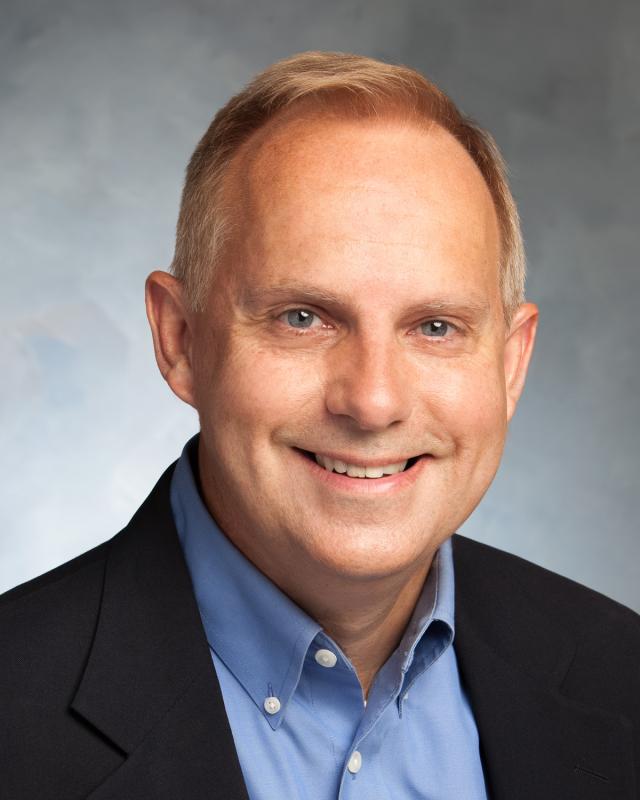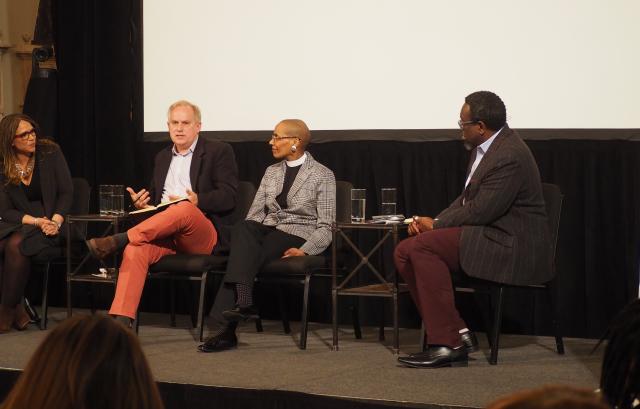Racial Mythologies: Recognition and Repentance

Dr. Greg Garrett remembers his childhood in Oklahoma, growing up in the Baptist Church, and a phrase he often heard: “the things that God laid on my heart.”
Even though he’s been a Baylor University professor for the past three decades, Canon Theologian at the American Cathedral in Paris, and a seminary-trained lay preacher in The Episcopal Church, Garrett returns to that phrase from his Baptist roots to describe the motivation for engaging the issue that animates his life: upending racism, what Garrett calls “America’s original sin.”
Garrett will present a workshop at Trinity Church Wall Street on Saturday, March 5, titled “Racism, Racial Mythologies, and the White Church,” an in-person event that is part of Trinity’s ongoing series on reconciliation.
All are welcome to register for the workshop, and Garrett is clear about who most needs to wrestle with the issue of race, racism, and racial mythologies.
“While people of color bring really important voices into the room,” Garrett said, “the people who most need to change are the people who look like me, who have been called white, identify as white.”
“Even though it is people of color who are most directly harmed by these myths, it is the responsibility of people who look like me to overturn them.”
As he does in the university classroom, Garrett will use film clips and stories from newspapers and magazines to explore “harmful racial mythologies that lurk deep in the American psyche, especially in the white psyche and they get reflected in church, in law and custom, in entertainment,” said Garrett.
“One of the big forms of discourse during the [2020] presidential election had to do with mobs and had to do with the safety of people in suburbia, both of which are ongoing dog-whistles that refer back to the racial mythologies [about Black people],” Garrett said.
“They’re dangerous that if they walk through your neighborhood peacefully [during a Black Lives Matter protest], you might feel justified in going out on your front yard with firearms, as a couple famously did, because of those mythologies that are so deeply ingrained in us.”
Participants at the workshop will have time for discussion, “table talks,” to help them process the race-based mythologies they’ve seen.
“Then I want to offer some counter-mythologies.
“Because I am a theologian, I will bring scripture in to talk about people on the margins, to talk about people who are pushed aside, about hierarchies, and what God seems to think about hierarchies.”
Although his history in anti-racist work goes back at least a decade, Greg Garrett believes that events of the past two years have created “a moment.”
We have a moment where people have had a recognition and for many people that recognition was George Floyd’s murder, and for people who look like me to realize that never in a million years would that have happened to me.
Dr. Greg Garrett
Garrett acknowledges that a three-hour Saturday morning workshop will not alleviate the evil of four centuries of white supremacy, but he believes the path toward possible future reconciliation must begin somewhere.
“It seemed to me more and more important to lean into this work even though it feels uncomfortable and difficult because it is, but it’s also incredibly necessary,” Garrett said.
“Hard work like this has to be wrapped in prayer. We’ll open with prayer, we’ll close with prayer. We will give up this hard work to the Divine and trust that the Spirit will step in and help us in the places where we need help.”
Attendance at the March 5 workshop will be limited due to COVID safety protocols. Proof of vaccination is required and masks will be worn. Participants will receive a light breakfast, a box lunch, and a free copy of Greg Garrett’s book, A Long, Long Way: Hollywood’s Unfinished Journey from Racism to Reconciliation.







